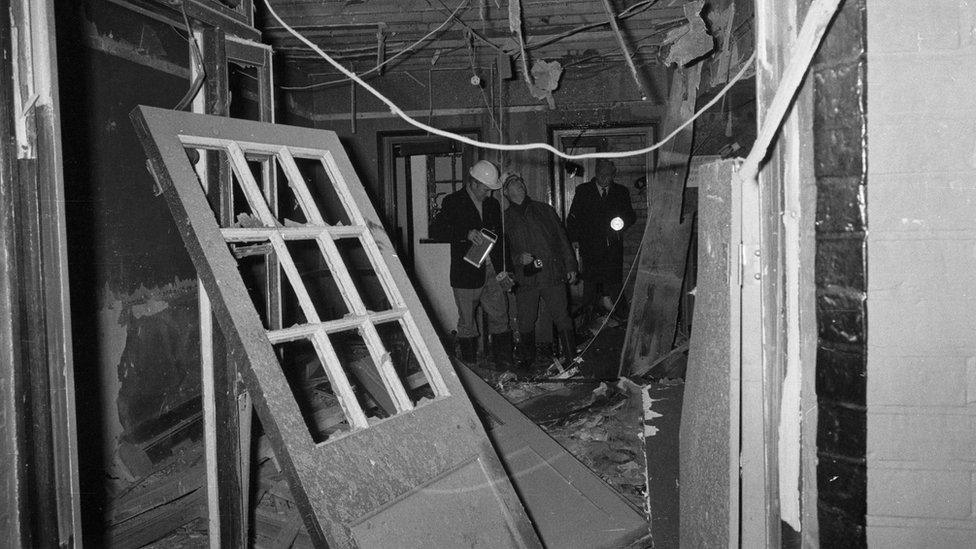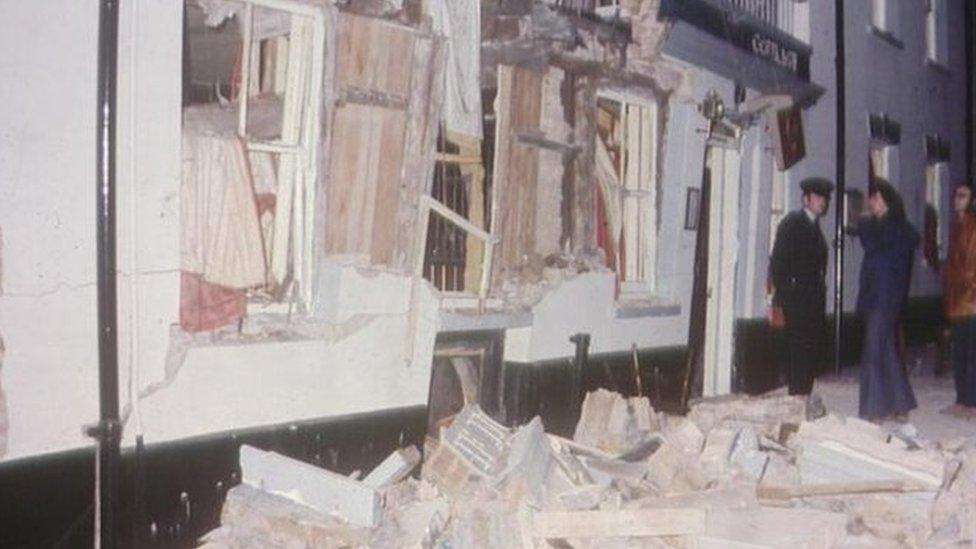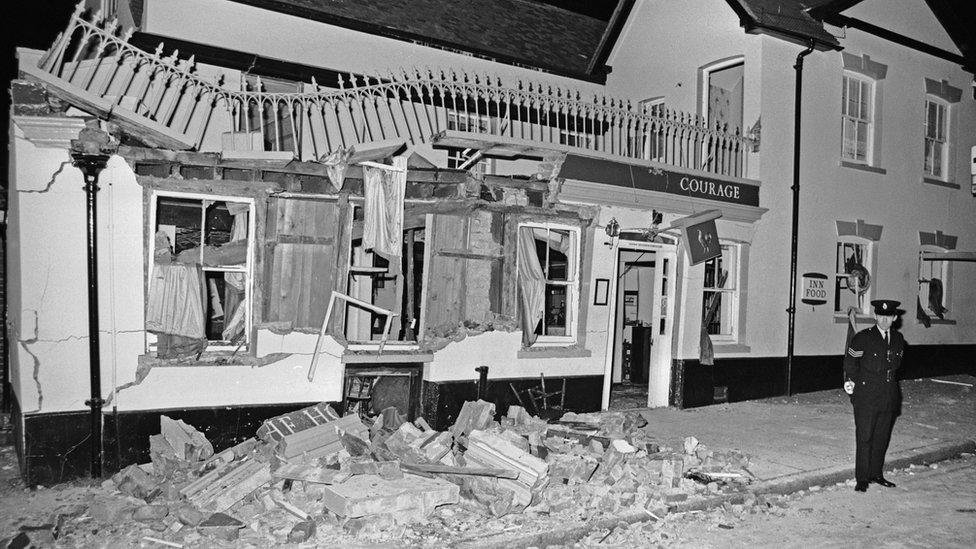Guildford pub bombs: Security threat evidence 'limited'
- Published

The bombs killed five people, injured 65 and led to one of Britain's biggest miscarriages of justice
Inquiries to establish the security threat to soldiers at the time of the Guildford pub bombs have yielded "limited" results, a coroner has heard.
A pre-inquest review heard two documents had been found so far.
Cassandra Hamilton, sister of Pte Ann Hamilton, one of five people who died, has previously asked why her sister's barracks were not on lockdown.
Edward Pleeth, for the Ministry of Defence (MoD), said extensive searches had been carried out.
Counsel to the inquest Oliver Sanders QC said the full inquest expected to hear from two witnesses who were second lieutenants but who had "different recollections" of events.
He said they were "middle management" with regard to the training of recruits to the Women's Royal Army Corps, but added: "We haven't been able to find anyone more senior from Pirbright."
Mr Pleeth said searches for papers had looked for information on national and local threats in 1974, including advice, alerts and warnings, and any policy or guidance, but added: "The documentation we have been able to recover is very limited."
The two documents identified were a manual of army security and a second letter that refers to a security alert in 1974 that is to be circulated to interested persons.
Ms Hamilton has claimed there was an ongoing IRA threat to military targets when the IRA targeted soldiers' pubs in Guildford on 5 October 1974 - the Horse and Groom and the Seven Stars.
The Hamilton family have previously asked why the system failed to protect loved ones in the face of a violent bombing campaign.

Caroline Slater, 18, Ann Hamilton, 19, William Forsyth, 18, John Hunter, 17, and plasterer Paul Craig, 21, died in the first explosion at the Horse and Groom
Four soldiers and a civilian were killed in the terror attacks and 65 people were injured.
The attacks led to one of Britain's biggest miscarriages of justice when 11 people were wrongly jailed - the Guildford Four and Maguire Seven.
The IRA's so-called Balcombe Street active service unit claimed responsibility for the attacks in 1976, but after the wrongful convictions were quashed, nobody else was prosecuted.
The inquest is not looking at who carried out the bombings or the miscarriage of justice and it will not be held with a jury, coroner Richard Travers has ruled.
A full inquest is due to begin in June.

Wrongly convicted Gerry Conlon, Paddy Armstrong, Paul Hill and Carole Richardson served 15 years in jail

Follow BBC South East on Facebook, external, on Twitter, external, and on Instagram, external. Send your story ideas to southeasttoday@bbc.co.uk.
Related topics
- Published25 March 2022

- Published8 February 2022

- Published14 January 2022

- Published5 October 2021
